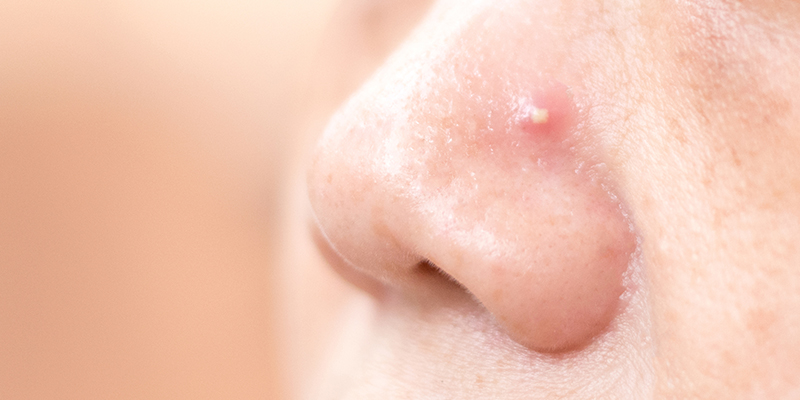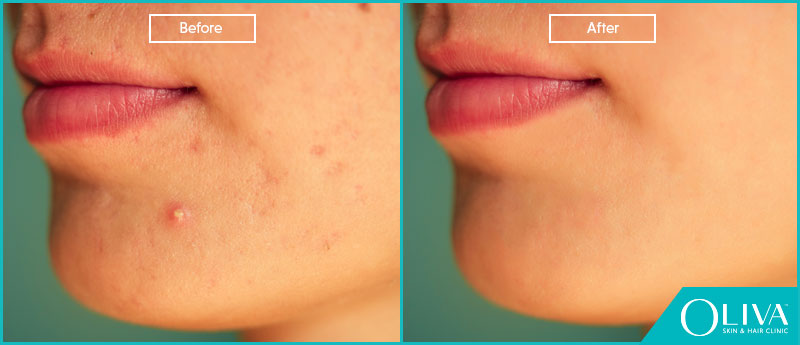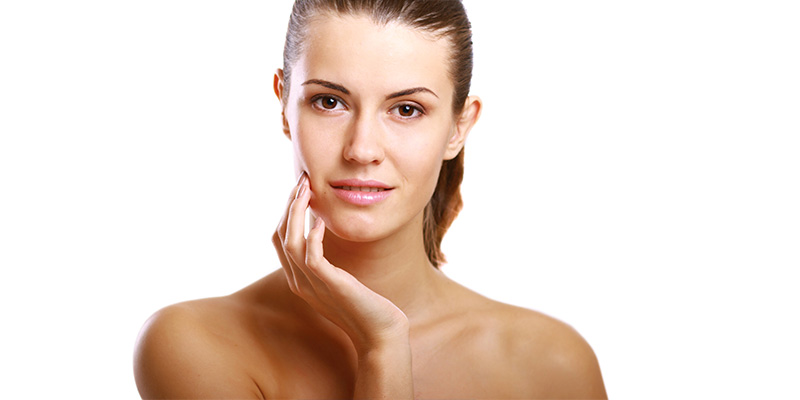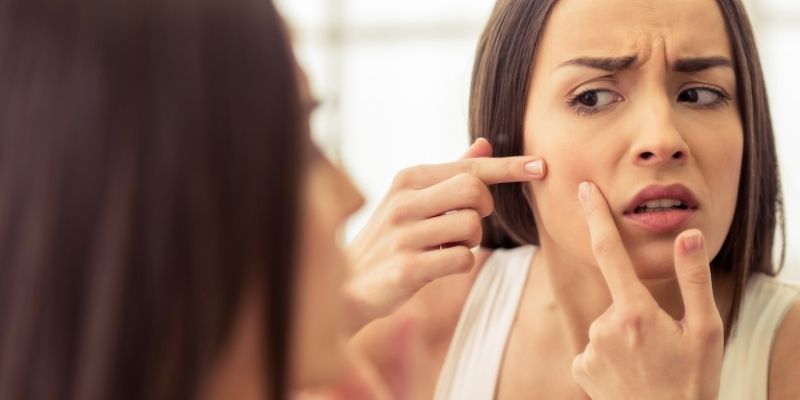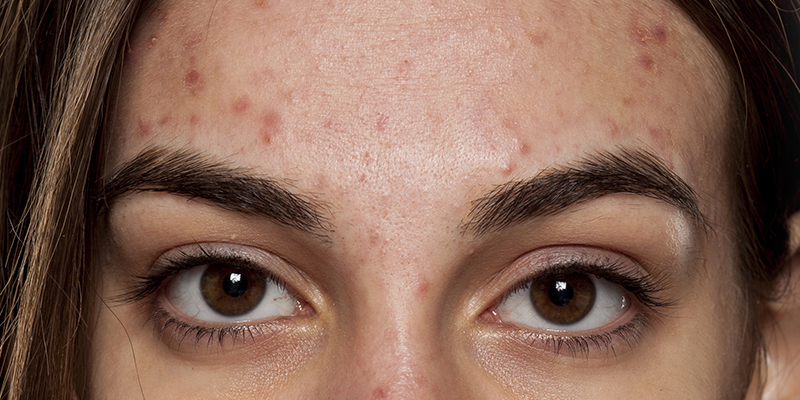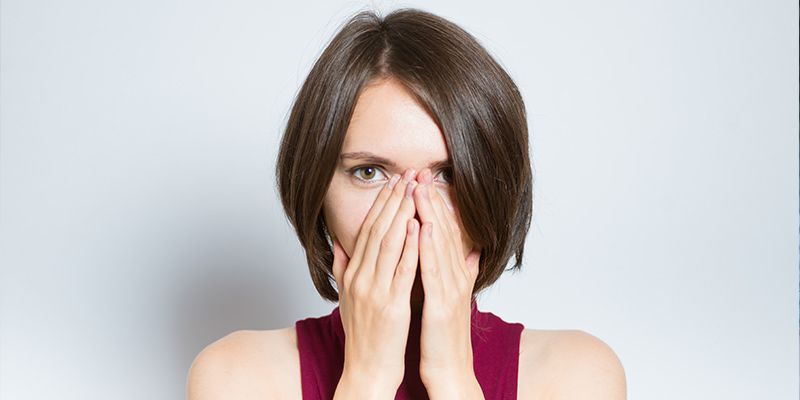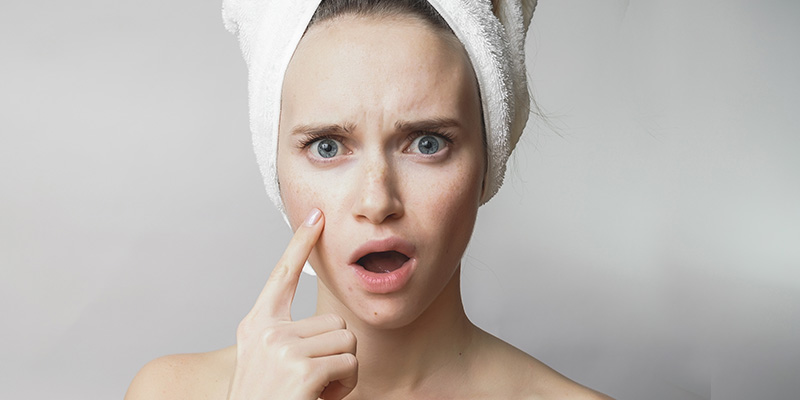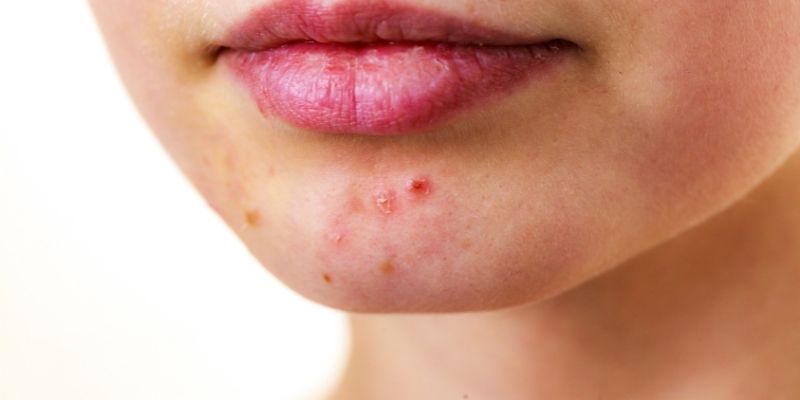Zits On Face: Causes, Treatment & Prevention Tips
Are you aware zits is another term for pus-filled pimples? Do you know zits affect people undergoing hormonal changes, especially during puberty and menstruation? Read this article to know more about the causes, treatments and prevention tips for zits.
What Is The Meaning Of Zits?
Zits are clogged skin pores, filled with pus. They often occur on areas of the body with dense sebaceous glands including the face, chin, chest, back, head and shoulders. Zits range in severity and may lead to scarring if left untreated.
Must Read: Best Treatments To To Get Rid Of Zits
Zits Vs Acne Vs Pimples Vs Blackheads
‘Pimples’, ‘acne’, and ‘zits’ all refer to the same condition, where skin pores get clogged with excess oil, dirt and bacteria. However, the term ‘zits’ commonly refers to pus-filled pimples.
Types of Zits
- Whiteheads
- Blackheads
- Papules
- Pustules
- Cystic
- Nodules
What Are The Causes Of Zits?
The skin pores are the openings of the oil glands that produce sebum. One of the main functions of sebum is to keep the skin nourished and supple by controlling its moisture loss. It also helps in preventing bacterial and fungal infections. Sometimes, the skin produces excess sebum, which along with dead skin or keratin and grime results in clogged pores. It further becomes a breeding ground for bacteria, eventually resulting in an outbreak of zits. Pus is a build-up of white blood cells and is the body’s natural response to counter infection.
The various factors that can increase the chances of excess oil production include –
- Internal Factors –
- Hormonal change or imbalance (due to puberty, menstruation cycle, pregnancy and PCOS etc.)
- Genes
- External Factors –
- Stress
- Side effects of medications
- Use of inappropriate skin care and makeup products that may clog the pores
- High glycemic Diet
- Friction or pressure due to straps and collar
Must Read: How To Prevent Pimples?
What Are The Symptoms Of Zits?
If you have acne, you may experience the following–
- The appearance of raised bumps on the skin filled with pus
- Redness in the affected area
- Pain or tenderness around the inflammation
Why Should You Avoid Popping A Pimple?
Never give in to the urge of popping a zit. It is a sure-shot way to aggravate the inflammation and may create permanent marks or scars on your face. Instead, consult a dermatologist and opt for treatments with proven safety and efficacy.
What Is The Best Zit Treatment?
Here are some of the treatment options to get rid of zits –
- Chemical Peels: For reducing zits on the face, salicylic acid and mandelic acid-based chemical peels are the most popular options. Dermatologists use chemical peels that are plant-based extracts to exfoliate the skin under controlled conditions. The peel, when left on the skin for a few minutes, removes dead skin cells, unclogs the pores and controls oil production. Repeated sessions of chemical peels can help achieve optimal results.
- Prescribed Topical Medications: Your doctor may prescribe the regular application of topical retinoids with or without benzoyl peroxide to control breakouts. This treatment tackles inflammation and redness and reduces sebum production, thus helping in effective acne management.
- Over the Counter (OTC) Options: Topical treatments based on benzoyl peroxide, clindamycin and salicylic acid are available at local pharmacies. These topical treatments work on reducing the dead skin cell build-up and preventing the clogging of pores. They also minimise the bacterial infection, preventing pus formation and the appearance of zits on the face. It is advisable to use anti-acne creams in consultation with an experienced dermatologist to achieve the best results.
Before And After Results
Myths Around Self-Care
Acne if left untreated can lead to scar-formation. The following self-care options are a strict no-no as they may aggravate the skin condition and lead to permanent blemishes:
- Home-based remedies may offer a cost-effective and convenient solution, but since they do not have any medical-proven efficacy, it involves a high-risk factor. Experimenting with kitchen ingredients may irritate your inflamed skin further.
- Many brands of anti-acne creams and spot gels flood the market promising overnight solutions to get rid of zits on the face. However, at best, they offer temporary results as they do not address the underlying cause, severity of the condition or skin type.
- Many face masks also claim to give you blemish-free complexion, but they fail to penetrate beyond the superficial layers of skin and offer effective and long-lasting solutions.
It is advisable to seek the advice of a dermatologist to reduce the inflammation due to zits and prevent permanent scars.
Must Read: How To Get Rid Of Acne Fast?
How To Get Rid Of Zit Scars On Face?
If your severe breakouts have left you with scars and collagen damage, you need not worry. Many advanced aesthetic treatments are now available that can help diminish your zit scars and deliver a visible improvement in your skin texture. –
- Laser Toning: It helps in reducing the red and hyperpigmented spots left behind by the healing acne.
- Pixel Laser Resurfacing: Pixel laser resurfacing is an effective treatment option for getting rid of rolling and boxcar zit scars. It enhances collagen production at the affected area, elevating the scars and reducing their appearance.
- Chemical Peel (Deep): The TCA Cross peel is among the most popular chemical peels, used to reduce the ice pick type of zit scars and mildly exfoliate the top layer of skin.
- Micro-needling: Radiofrequency micro-needling stimulates collagen production in the skin and fills up indentations caused by the zit scars.
- Subcision: This is a minor surgical procedure used to release the underlying adhesions and elevate the scars, especially the rolling scars.
- Intralesional Injections: Dermatologists administer corticosteroid injections at the site of scarring to reduce inflammation and treat the hypertrophic or keloidal scars.
- Fillers: Dermal fillers are gel-like substances used to fill up space in the scar tissue and diminish the overall appearance of an atrophic scar. This treatment offers temporary results and requires multiple maintenance sessions as the filler substance gradually dissolves.
- Scar Excision: Dermatologists perform scar excision using a specialised tool to correct the appearance of raised scars.
How To Prevent Zits On Face?
Here are a few simple tips you can follow to prevent the formation of pus-filled pimples:
- Avoid scratching, popping or picking the acne.
- Maintain a good skincare routine and use only non-comedogenic or water-based products.
- Pay proper attention to hair and scalp hygiene by regularly washing your hair.
- Eat a balanced and healthy diet rich in essential nutrients and anti-oxidants.
- Seek professional medical help as early as possible to avoid scarring and post-inflammatory hyperpigmentation due to zits.
Now you know why it is better to seek immediate medical advice rather than rely on home remedies to treat zits. If you have acne-prone skin go ahead and consult a leading dermatologist at Oliva Skin & Hair Clinic and get ready to flaunt a flawless complexion!
Our certified subject matter experts do extensive research and collate facts from reputed scientific journals and international studies to create informative and engaging articles related to all your dermatology concerns. They strive to help you decipher medical jargon, distinguish fact from fiction and overcome paranoia. Our qualified medical board or expert panel goes a step further to verify these facts based on their rich academic knowledge, vast clinical experience and critical industry insights to ensure you consume only medically accurate content that empowers you to make informed decisions about your hair and skin-care treatments and weight management. Check out our Editorial policy for further details
https://www.ncbi.nlm.nih.gov/books/NBK279211/https://www.niams.nih.gov/health-topics/acne
https://medlineplus.gov/acne.html
https://medlineplus.gov/ency/patientinstructions/000750.htm






